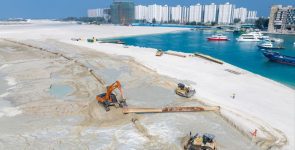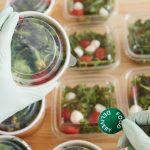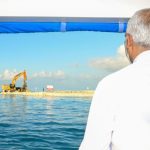
The Maldives is preparing to export its first batch of commercially cultivated seaweed, marking a new chapter in efforts to diversify the economy through sustainable marine industries.
The initiative is being led by Floating Acres, a private firm that began commercial-scale cultivation in April this year at Fehendhoo, Baa Atoll. With its first export stock now ready, the company’s progress signals a step forward in the country’s broader mariculture development.
According to the Ministry of Fisheries and Ocean Resources, the achievement reflects growing momentum in harnessing marine resources for sustainable growth. The ministry noted that seaweed farming offers economic and environmental potential, particularly in creating jobs and generating export revenue while supporting ecological balance.
The launch of the operation follows recent regulatory changes that allowed commercial mariculture projects to move ahead after years of policy stagnation. Although seaweed farming had previously been tested in the Maldives and proven viable, the absence of a formal regulatory framework had prevented commercial-scale production.
Globally, the seaweed industry is expanding rapidly. Valued at USD 17.14 billion in 2023, the market is projected to double by 2032, driven by increasing demand for seaweed-based food, pharmaceuticals, cosmetics, and biofuel. Asia currently dominates the sector, accounting for nearly all global production, with leading producers including China, Indonesia, South Korea, and the Philippines.
For the Maldives, where over 99 percent of the territory is ocean, mariculture represents a strategic opportunity to strengthen the fisheries sector and build new export avenues. Industry observers see the country’s entry into seaweed cultivation as an important step towards a more diversified and resilient ocean economy.











